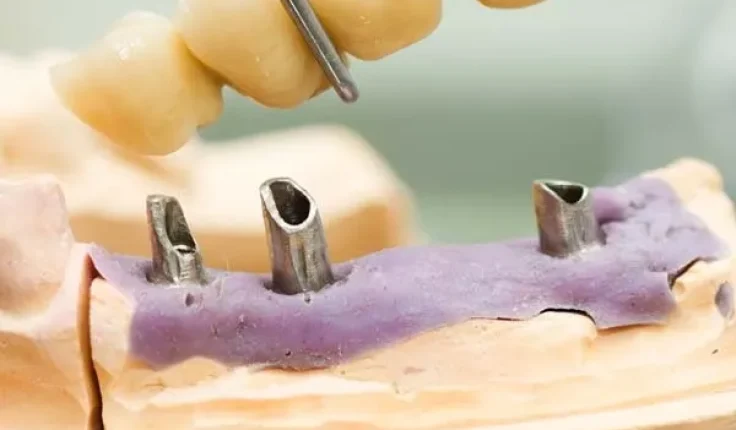Is bone grafting necessary for dental implants if I have bone loss?

Dental implants have become the gold standard for replacing missing teeth because they provide stability, function, and a natural appearance. However, many patients considering implants worry about one major factor: bone loss. When bone loss occurs due to missing teeth, gum disease, or other oral health issues, it may impact whether implants can be placed successfully. This leads to a common question: Is bone grafting necessary for dental implants if I have bone loss? Let’s explore this in detail while addressing important considerations for patients thinking about procedures like Bone Loss And Dental Implants and Full Arch Dental Implants Houston.
What Happens to the Jawbone After Tooth Loss?
When you lose a tooth, the jawbone in that area no longer receives the stimulation it once got from chewing forces. Over time, the bone begins to deteriorate. This process is called resorption. The longer a tooth is missing, the more bone loss occurs. Gum disease, trauma, and aging can accelerate this process.
For individuals considering dental implants, bone volume is critical. Implants require a strong foundation to integrate properly with the jawbone. Without sufficient bone density, implants may not fuse securely, risking failure. That’s why patients with significant bone loss often need bone grafting before or during implant placement.
What Is Bone Grafting in Dentistry?
Bone grafting is a surgical procedure that rebuilds or strengthens areas of the jawbone that have deteriorated. Dentists or oral surgeons place grafting material in areas with insufficient bone. Over time, the body naturally replaces the graft with new bone tissue, creating a stronger foundation for dental implants.
Different types of bone grafts exist, including:
- Autograft – Bone taken from your own body (such as the chin or hip).
- Allograft – Bone material from a donor.
- Xenograft – Bone from an animal source (commonly bovine).
- Alloplastic graft – Synthetic bone-like material.
The choice depends on your specific condition, treatment goals, and the dentist’s recommendation.
Do All Patients with Bone Loss Need Grafting Before Implants?
Not always. While bone grafting is common, it isn’t necessary for every patient. Some people still have enough bone volume to support implants, even after years of tooth loss. Advances in implant dentistry also provide alternatives for patients with reduced bone, such as short implants or angled implant placement.
That said, if your bone loss is severe, grafting often becomes unavoidable to ensure implant success. For patients seeking Full Arch Dental Implants Houston, bone grafting may be necessary if multiple areas of the jaw have deteriorated.
Why Is Bone Grafting Important for Implant Success?
Bone grafting is crucial because implants depend on osseointegration—the process where the implant fuses with natural bone. Without enough bone:
- The implant may fail to stabilize.
- There’s a higher risk of infection or gum recession.
- The final restoration may not look natural or function well.
By rebuilding bone before implant surgery, grafting ensures that implants last longer, perform better, and provide a more natural appearance.
How Does Bone Loss Affect Full Arch Dental Implants?
Patients considering Full Arch Dental Implants Houston often face the challenge of widespread bone loss. When replacing an entire arch of teeth with implants, stability is even more critical. Techniques like the All-on-4® implant system strategically place implants in areas of higher bone density, sometimes eliminating the need for extensive grafting.
However, not every patient qualifies for this approach without bone support. A thorough evaluation, including 3D imaging, helps determine whether bone grafting is required before full arch implant treatment.
What Are the Benefits of Bone Grafting Before Dental Implants?
Choosing bone grafting when necessary can make a major difference in the outcome of implant surgery. Benefits include:
- Enhanced stability – A stronger jawbone secures the implants long-term.
- Natural aesthetics – Bone restoration supports the gums and prevents facial sagging.
- Improved oral health – Rebuilding bone helps maintain alignment and jaw structure.
- Higher success rates – Bone grafting reduces the risk of implant failure.
By investing in grafting, patients protect their implant treatment and ensure better functional results.
How Do Dentists Determine If You Need Bone Grafting?
At a consultation, the dentist performs a comprehensive exam that includes:
- X-rays and 3D imaging – These reveal bone density and volume.
- Medical and dental history review – Conditions like gum disease or osteoporosis affect bone health.
- Treatment planning – For Bone Loss And Dental Implants, dentists evaluate whether grafting is needed before placing implants.
Some patients may only need minor grafting, while others require more extensive procedures before implants can be placed.
What Happens During Bone Grafting for Dental Implants?
The process usually follows these steps:
- Local anesthesia or sedation to ensure comfort.
- Placement of graft material into the deficient bone area.
- Healing period of several months as the graft integrates with natural bone.
- Implant placement once the bone is strong enough.
In some cases, the graft and implant can be placed at the same time, reducing overall treatment length.
Can Bone Grafting Add Time to the Implant Process?
Yes. Bone grafting typically adds healing time—usually 3 to 6 months—before implants can be placed. However, this step ensures long-term implant success. While it may feel like an extra stage, skipping grafting when it’s necessary often leads to complications or implant failure.
Is Bone Grafting Worth It for Full Arch Dental Implants?
Absolutely. For patients receiving Full Arch Dental Implants Houston, bone grafting creates the stability required to support multiple implants across the jaw. The investment in grafting pays off with durable, natural-looking results that restore both appearance and function.
Why Choose Vip Dental Implants for Your Treatment?
If you are considering dental implants with bone grafting, choosing the right provider is essential. At Vip Dental Implants, patients receive advanced diagnostic imaging, personalized treatment plans, and cutting-edge bone grafting techniques to maximize implant success. The team specializes in both single-tooth and full arch restorations, ensuring solutions tailored to every case of bone loss.
With experience in Bone Loss And Dental Implants, the clinic provides comprehensive care from consultation to final restoration. Patients trust Vip Dental Implants for their expertise, comfort-focused approach, and long-term success rates.
Final Thoughts
So, is bone grafting necessary for dental implants if you have bone loss? The answer depends on your unique condition. Some patients can receive implants without grafting, while others need bone restoration first. For individuals seeking Full Arch Dental Implants Houston, bone grafting often plays a key role in creating the strength and stability required for lasting results.
By working with a skilled implant provider like Vip Dental Implants, you can determine whether bone grafting is right for you and ensure your implants provide a lifetime of confidence, function, and natural beauty.




















